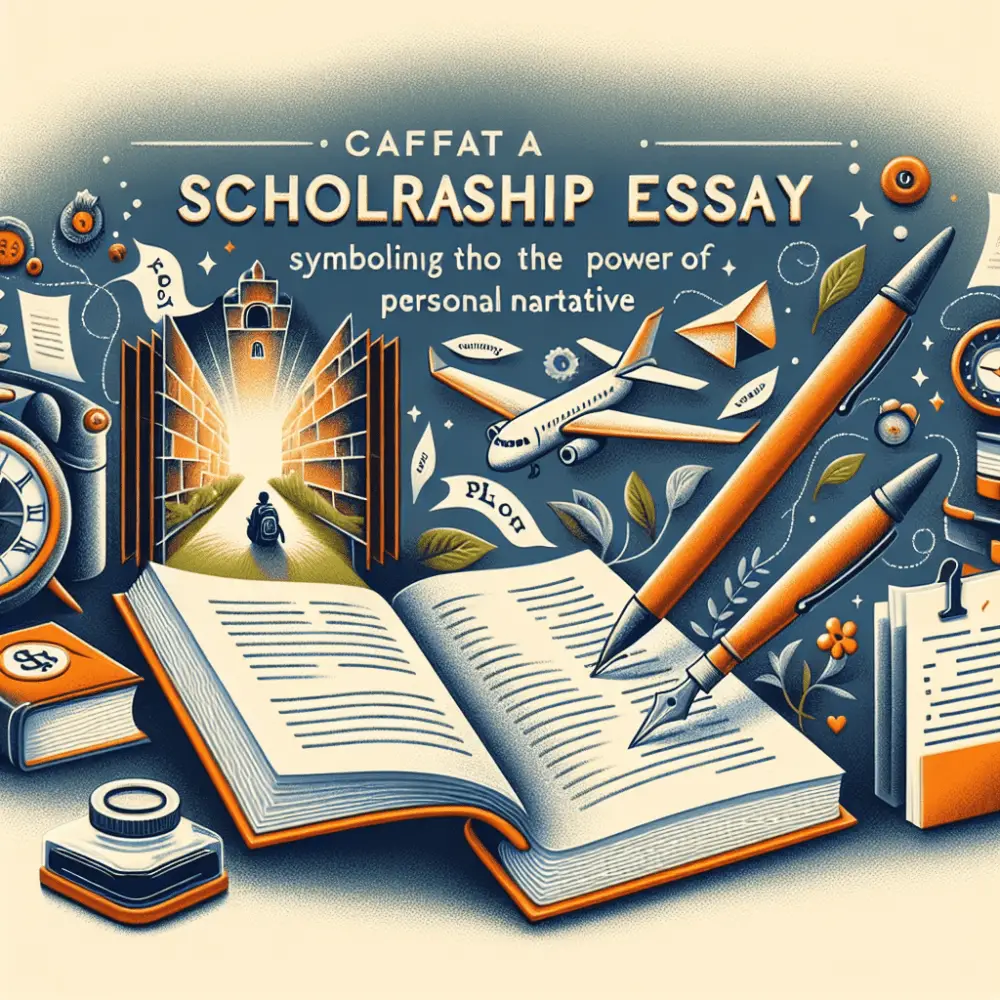
The Power of Personal Narrative: Crafting a Compelling Scholarship Essay
Scholarship essays are a critical component of the application process for many students seeking financial aid. These essays can make or break an applicant’s chances of securing funding for their education. While grades, test scores, and extracurricular activities are essential, a compelling personal narrative can set an application apart from the rest. This article explores the power of personal narrative and offers practical advice on crafting an engaging and effective scholarship essay.
Understanding the Personal Narrative
A personal narrative is a story about oneself that conveys experiences, emotions, and insights. It is not just a recounting of events but an opportunity to reflect on what those events mean and how they have shaped one’s identity. In a scholarship essay, a well-crafted personal narrative can provide insight into who the applicant is beyond their academic achievements.
Why Personal Narratives Matter
Personal narratives allow scholarship committees to see applicants as real people with unique stories rather than just names on paper. They offer context to the accomplishments listed in resumes and transcripts, helping decision-makers understand the individual’s journey. A powerful story can evoke empathy, highlight resilience, and demonstrate passion—all qualities that scholarships often seek to support.
Elements of a Strong Personal Narrative
Authenticity: Authenticity is crucial in crafting a personal narrative. Applicants should be genuine about their experiences and emotions. Exaggeration or fabrication can easily be spotted and will undermine credibility.
Specificity: Vague descriptions do little to engage readers or convey depth. Specific details help paint vivid pictures in readers’ minds, making the story more compelling.
Emotion: Emotions connect people to stories. By sharing feelings honestly—whether joy, sorrow, fear, or determination—applicants can create an emotional bond with their readers.
Growth: Demonstrating growth through experiences shows maturity and self-awareness. Scholarship committees often look for individuals who learn from challenges and continue to evolve.
Relevance: The narrative should align with the scholarship’s values or objectives. Whether it’s leadership potential, community service commitment, or academic excellence, aligning personal stories with these themes strengthens applications.
Steps to Crafting a Compelling Narrative
Brainstorming: Begin by brainstorming significant life experiences that have shaped your identity or outlook on life. Consider both triumphs and challenges as potential focal points for your essay.
Choosing an Angle: Identify one central theme or lesson from your brainstormed experiences that aligns with the scholarship’s core values.
Creating an Outline: Organize your thoughts into a coherent structure before starting to write.
- Introduction: Grab attention with a hook—an intriguing fact or statement related to your story.
- Body: Develop your narrative by describing key events in chronological order or by importance.
- Conclusion: Reflect on what you’ve learned from these experiences and how they relate to your future goals.
Writing First Drafts: Write freely without worrying about perfection in initial drafts; focus instead on getting thoughts down on paper.
Revising: Review drafts critically—looking for clarity, coherence,and conciseness—and edit accordingly.
- Remove clichés
- Ensure consistency
- Tighten sentences
\Ensure each paragraph transitions smoothly into subsequent ones while maintaining overall flow
6.Developing Character Development:
Don’t merely state achievements but delve deeper into how those accomplishments influenced personhood
For example,rather than simply saying “I volunteered at shelter,” elaborate further like “Volunteering at shelter opened my eyes towards societal inequalities & fueled passion toward social justice”
7.Seeking Feedback:
Have trusted friends,family members & teachers review essays;
They might provide invaluable perspectives igniting improvements;
8.Proofreading:
Finally ,meticulously proofread entire essay catching grammatical errors,punctuation mistakes spelling blunders etc;
Common Pitfalls
While creating engaging narratives ,some common pitfalls should be avoided :
1.Excessive Self-Promotion :
Balance humility & pride gracefully ;boasting too much may come across pompous ;
2.Avoid Overused Stories :
While overcoming adversity makes powerful storyline yet ensure yours stand out uniquely ;
Instead generic “lost grandparent ‘’,try emphasizing specific coping mechanisms learned therein;
3.Ignoring Prompt Instructions :
Many applicants deterred following prompts guidelines specified leading disqualification ;
Hence strictly adhering prompts ensures eligibility intact ;
4.Too Many Details :
Avoid bombarding reader excessive information ; keep concise sticking necessary details only ; remember quality over quantity matters here ultimately ;
Final Thoughts
In essence,powerful person narratives breathe life into otherwise mundane data representing candidates holistically thereby maximizing chances attaining scholarships greatly .By adhering aforementioned strategies meticulously one could craft compelling essay leaving indelible impressions panelists paving way successful academic financial pursuits ahead!












